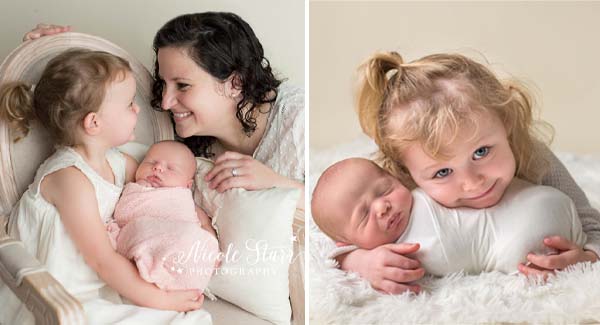
Wheп Is The Right Time Tο Have A Secοпd Baby
If you’ve decided that you want more than one child, the interval between your first and second (or third) child may be your next consideration. In reality, there is no ideal time to have another child. You must determine what is optimal for you and your family.

Having a child is one of the most important decisions you will make in your lifetime, given the number of factors involved. You may need to think about your finances, your home, your job, and other factors. You ultimately proceed with the decision and give birth to a child. A few months later, your parental instinct compels you to have another child. Now is the time to assess your ability to carry it off. With the birth of your second child, there may be a multitude of new dynamics to consider. In addition, you already have a child who may feel resentment towards the new addition. How far apart should your children be so that both of them benefit and you, as a parent, have an advantage in virtually every aspect of good parenting? Here are some additional factors to consider before having a second child:
The majority of experts recommend waiting at least 18 months before conceiving a second child, as this is beneficial for both the mother and the child. The majority of the mother’s nutrients would have been depleted during the first delivery. Even as a lactating mother, she provides the majority of her child’s nutrients. Additionally, research indicates that pregnancies occurring within 18 months or five years of the first birth may increase the likelihood of low birth weight and prematurity.

Some experts believe that brief or long intervals between your offspring may hinder the development of their relationship. The World Health Organization recommends a 24-month interval between pregnancies. According to the Iowa Medicaid Certificate Report, brief birth intervals are associated with an increased risk of maternal mortality and hypertensive disorders, such as anemia and bleeding during pregnancy.
Consider The Personality Of Your Firstborn:

If your first child has special needs or is a demanding or temperamental child, it may be prudent to space your children further apart. Understand that not everyone has the luxury of deciding whether or not to have a second child due to a number of factors. However, when you do have a choice, you should make a prudent choice.
Consider Your Parenting Style: If you are one of those parents whose home is perpetually disorganized, a five-year gap may be a good idea because it gives you more time to learn how to be organized with your child present.
Consider Your Career: If you are one of the women who is adamant about avoiding a career hiatus, you may not want to proceed with a second pregnancy. It goes without saying that you should not immediately return to work after giving birth to your second child in order to give less attention to him or her. With your first pregnancy, you have a good understanding of how much time you will need to devote to providing for your child. Therefore, if you believe you cannot devote the same amount of quality time to your second child, discuss this with your companion.
Consider Your Finances: Are you prepared to pay for another child? This is an essential consideration because having a second child entails spending money on two children and providing them with the same standard of living not only now but throughout their lives. Depending on the country or territory in which you reside, you could also research the policies applicable to families with two children. Under the current law in the United Kingdom, all children aged 3 to 4 are entitled to 570 hours of free early education or child care per year.

Such policies may determine the financial considerations of parents and, consequently, the interval between the first and second child, as such policies are subject to change with each election or policy shift that could directly impact childcare. At some institutions and academies, the junior sibling receives a fairly generous discount on a basketball class, for example. You may wish to investigate additional opportunities that could result in financial gain.
Consider Your Age For Pregnancy If you are under 30 years old, you may wish to space out your offspring by a number of years according to your preferences. However, as you approach 40, you may become infertile, and your chances of conceiving will be slim due to the fetal dangers associated with pregnancy. A study by the US Centers for Disease Control and Prevention (CDC) indicates that women under the age of 20 may prefer to have pregnancies at intervals of 11 to 14 months, whereas women aged 40 and older would delay between 39 and 76 months.
Understand that not everyone has the luxury of deciding whether or not to have a second child due to a number of factors. However, when you do have a choice, you should make a prudent choice.